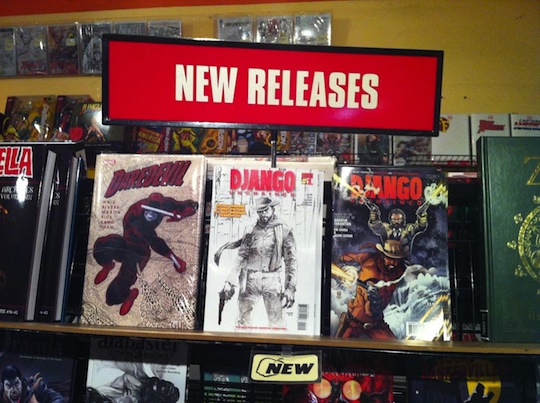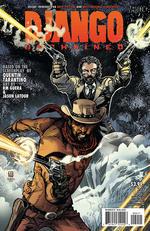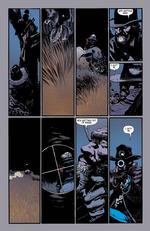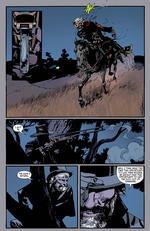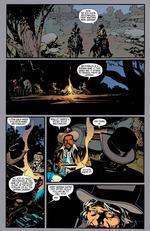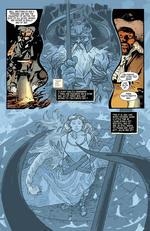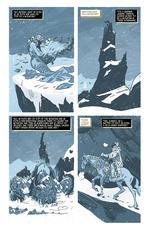The Oscar Luncheon
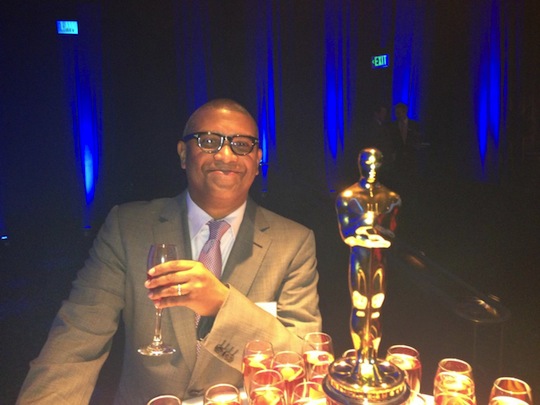
The Oscar Luncheon is one of the three key Oscar events. First is the Governor’s Ball, which I attended, but took no pictures of. It was great, but since I have no documentation to share, I”ll just move on to the next event, which was the Oscar Luncheon. This is an event where you can take a guest, which is not always the case. So most of these fine pictures are by my wife.
The event itself is at the Beverly Hilton, which we were just at for the Golden Globes. In the lobby, I run into Phil Alden Robinson. Phil is an amazing filmmaker (FIELD OF DREAMS, SNEAKERS, the last TOM CLANCY movie), a deeply committed social activist, and a fun and wonderful person. I never spend as much time with him as I want to. Last time we talked we discussed doing an adaptation of a comic book property together…I think I’ll try again this year.
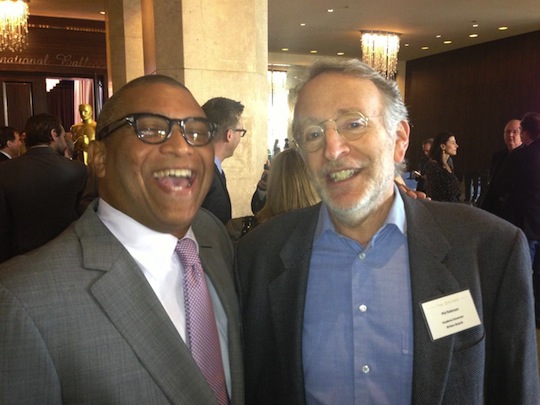
Anyway, here we are. He immediately got me involved in doing more the Academy, which I’d like to do anyway.
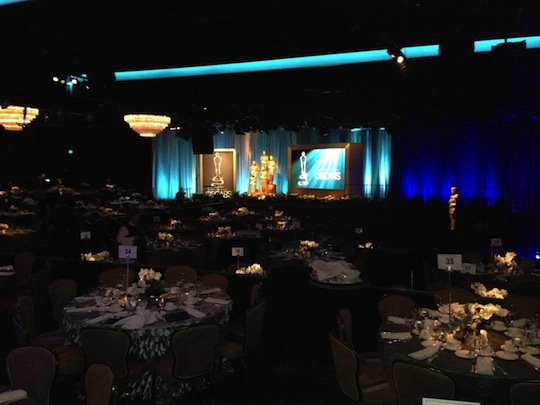
Once you get inside, there’s a line of press and you take a picture with Hawk Koch, who is running the Academy. Hawk has already made some good innovations this year, like making the shorts films available on DVD. This is a great step forward in making the membership able to make an informed vote on all the films.
Inside, the room is cool and blue. There are sexy red drinks everywhere. All the nominees are there. It’s a star studded room.
Lunch seating is assigned, so you don’t sit with the other folks from your movie, which forces you to make new friends, which is good. Turns out the producer of the Oscar nominated documentary HOW TO SURVIVE A PLAGUE is a comic book head too, so we bond.
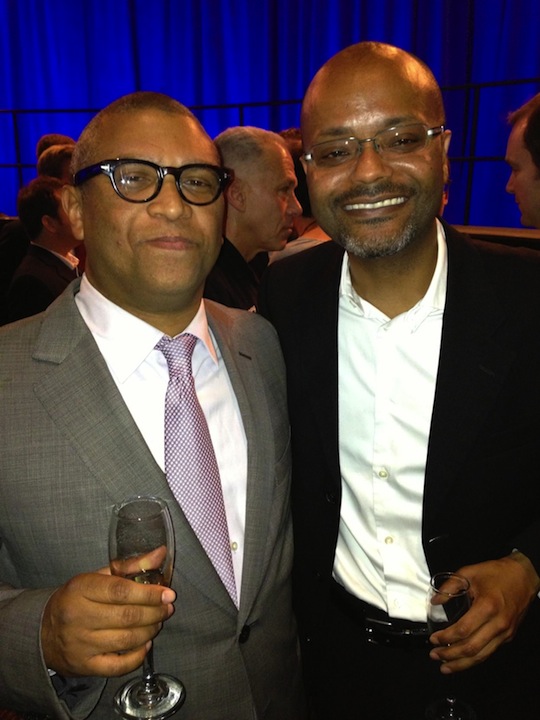
There’s a black guy in the room I don’t know. In a room with very, very few black people, I can’t believe there’s a guy there I don’t know. So I go meet him. Turns out that Christopher White is ALSO an Oscar nominee for his special effects work on THE HOBBIT. He went to New Zealand ten years ago for a six month gig and has been there ever since. He’s now got dual citizenship. What a success story!
After lunch, they start calling names one by one. When you name is called, you go stand at the amphitheater set up in one corner of the room for the official photo.
The names are called in random order. Not alphabetical, not by film or title. Each person gets applause as they walk up. It’s very dramatic and suspenseful. You don’t when you will hear your name.

It goes on a long time. My fellow producers are up there. Most people are. Not me. I quietly start to panic. Has there been some horrible mistake?
Then…it’s my turn. I step up. The only other time I felt like this is when I graduated from college. We are the class of 2013. It feels glorious.
I stand where they tell me. I look behind me – Robert DeNiro. Then Helen Hunt stands next to me. Then Stephen Spielberg (the last name called) stands next to her.
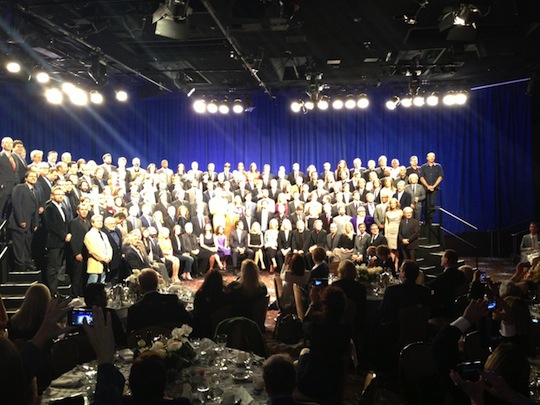
I feel very good about where I am in my life.
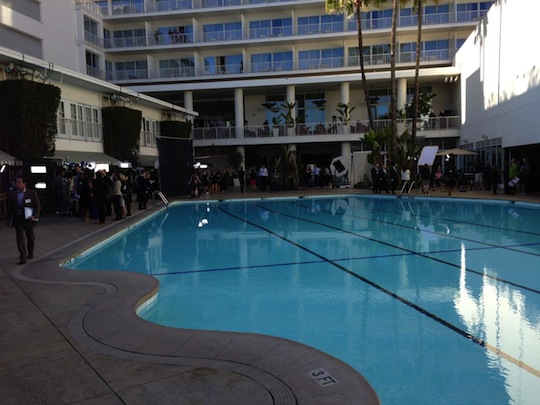
Afterwards there’s mad press by the pool so me and my fellow producers Stacey Sher and Pilar Savone go take pictures and do interviews with different outlets.
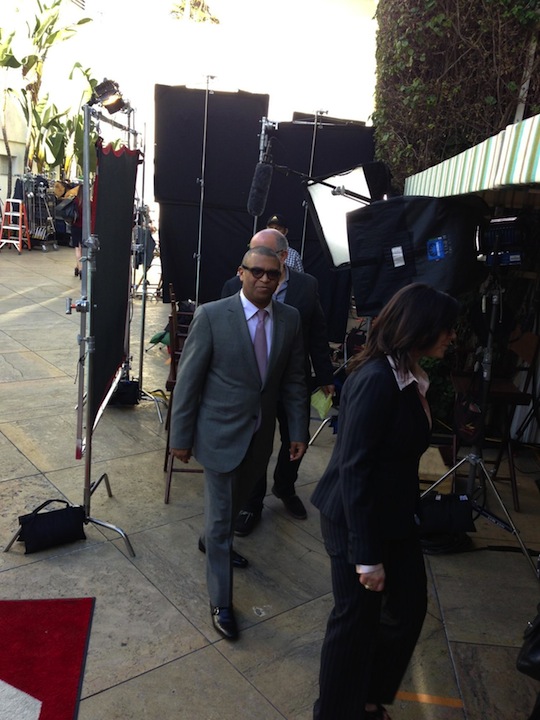
At this point we’ve got the three people talking thing down smooth.
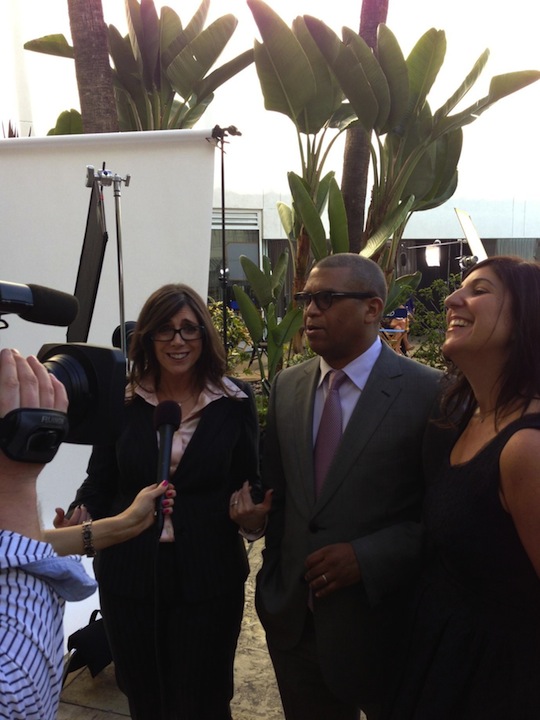
People rarely use an interview with a producer –stars and directors are preferred – but we had fun!
Talk about it on HEF – the Hudlin Entertainment Forum
Comment + Permalink
